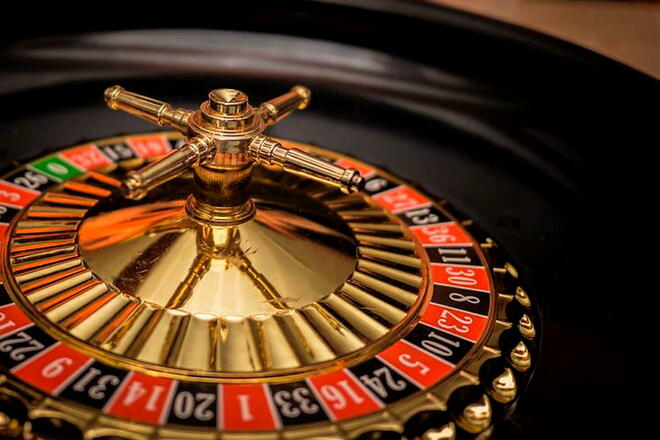
Casino experiences have long captured the interest of humans around the globe, becoming an essential part of both entertainment and tradition. From the glimmering lights of Nevada to the immersive experience of online gaming, these games evoke enthusiasm, uncertainty, and sometimes even a sense of nostalgia. They are more than just hobbies; they have woven themselves into the tapestry of human experience, influencing various aspects from cinema and music to fashion and writing.
The charm of casino games goes beyond the betting aspect, tapping into larger themes of luck, possibility, and human behavior. As players assemble around a poker table or rotate the roulette, they engage in an ancient ritual that connects with our collective desire for adventure and instability. This obsession has led to the growth of many references in films, tracks, and electronic games, showcasing how strongly entrenched these games are in pop culture. Whether it is the high-stakes tension of a legendary caper or the lively nightlife portrayed in recordings, casino games have established a substantial place that reflects our relationship with risk and reward.
Social Significance of Casino Activities
Gambling games have played a pivotal role in social contexts throughout history. Originating from old civilizations, forms of chance were often linked to rituals or gatherings. For example, early iterations of gambling can be traced back to ancient China and the Roman Empire, where dice games and betting on outcomes were popular pastimes. These games not only served as leisure but also as methods of connecting people, facilitating connections among individuals within communities.
As societies evolved, so did the complexity and structure of casino games. The establishment of official casinos in the 17th century, particularly in Italy, marked a notable shift in how games were perceived and organized. With specific spaces for gaming, the casino became a community center where people from different backgrounds gathered. This evolution contributed to the legitimization of the industry, transforming it from a mere pastime into an established industry that influenced the economy and policy.
The impact of casino activities on mainstream culture cannot be understated. As they were brought into the limelight in books and film, games such as poker and 21 became symbols of chance, chance, and tactics. Famous figures and narratives have developed around these activities, illustrating societal views towards fortune, prosperity, and immorality. This fascination with casino games has infiltrated various forms of entertainment, solidifying their status in the public imagination and linking them to broader cultural stories throughout history.
Portrayal of Casino Games in Entertainment
Gambling games have long been a popular theme in different types of entertainment, reflecting both the fascination and complexities of the world of gambling. bongdanet Films such as Ocean’s Eleven and Casino Royale portray characters who navigate intense situations, showcasing not only the appeal of the casino atmosphere but also the strategies and choices that come with playing popular games like poker and 21. These films often dramatize the excitement of winning and the potential repercussions of losing, encapsulating the risks involved in gambling.
Television shows have also explored the realm of casino games, often integrating them into the storyline as a backdrop for character development and drama. Series like Las Vegas depict the lives of casino workers and patrons, highlighting the lively, often chaotic energy of the gaming floor. Reality shows featuring high-stakes betting contests further emphasize the attraction of gambling activities, drawing viewers into the excitement and tactics involved in each game. Through these depictions, media not only entertains but also prompts conversations about luck, expertise, and the character of chance. nhận định bóng đá nét
Video games have increasingly included gambling activities into their structure, allowing players to recreate the feeling of betting without monetary loss. Games within the landscape of online gaming often include virtual slots, online poker, and other casino favorites, creating an interactive experience that mirrors traditional gambling. These digital representations make gambling activities accessible to a worldwide viewer base, appealing to both gamblers and those who enjoy the excitement of simulation. As a outcome, the representation of casino games in entertainment continues to shape public perception and cultural significance, highlighting their function in society and social context.
Effect of Casino Games on Communities
Casino games have a meaningful effect on society, affecting various aspects of societal norms and interpersonal behavior. They often function as a venue for community engagement, where people come together to experience a common activity. Game nights with friends or trips to casinos become social activities that build connections and create memories. This communal aspect boosts the entertainment value of gambling activities, making them a favored choice for celebrations and recreational pursuits.
Additionally, casino games have been portrayed in countless films, television shows, and literature, shaping perceptions and attitudes towards gaming and betting. Icons like James Bond competing in baccarat or the intense poker scenes in films have embedded these games in the collective imagination. This representation often glamorizes the lifestyle associated with gambling, drawing in new players and influencing trends in both fashion and behavior. These portrayals can spark curiosity and lead to a more profound investigation of the intricacies of gaming.
However, there are also adverse implications associated with the widespread appeal of casino games. The allure of quick monetary gain can lead to problem gambling and economic troubles for some individuals. Society must grapple with these consequences, advocating for responsible gaming and education of the risks involved. Finding a balance between the entertainment value of casino games with the potential for harm is crucial to ensure that they remain a positive aspect of our societal fabric.
